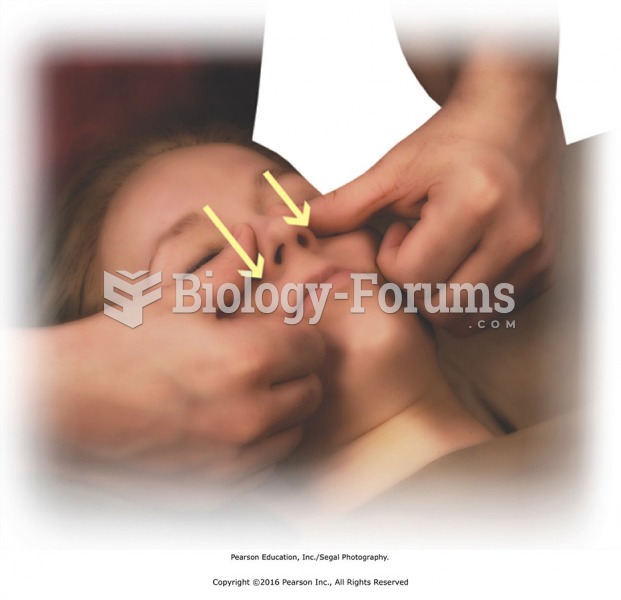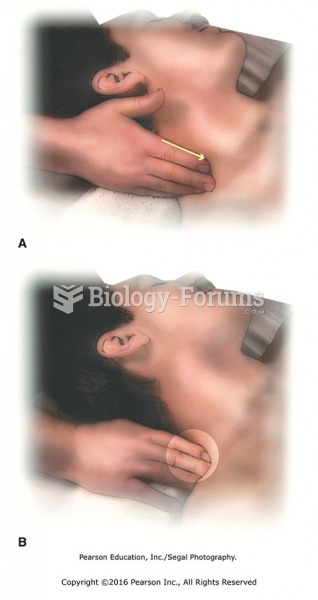|
|
|
Certain chemicals, after ingestion, can be converted by the body into cyanide. Most of these chemicals have been removed from the market, but some old nail polish remover, solvents, and plastics manufacturing solutions can contain these substances.
It is widely believed that giving a daily oral dose of aspirin to heart attack patients improves their chances of survival because the aspirin blocks the formation of new blood clots.
Atropine, along with scopolamine and hyoscyamine, is found in the Datura stramonium plant, which gives hallucinogenic effects and is also known as locoweed.
Approximately 15–25% of recognized pregnancies end in miscarriage. However, many miscarriages often occur before a woman even knows she is pregnant.
The term bacteria was devised in the 19th century by German biologist Ferdinand Cohn. He based it on the Greek word "bakterion" meaning a small rod or staff. Cohn is considered to be the father of modern bacteriology.
 Thumb slides along the nose. Slide a thumb over the procerus muscle, then use both thumbs to slide ...
Thumb slides along the nose. Slide a thumb over the procerus muscle, then use both thumbs to slide ...
 Effleurage along deep rotator muscles using the knuckles. Slide knuckles from sacrum to hip, tracing ...
Effleurage along deep rotator muscles using the knuckles. Slide knuckles from sacrum to hip, tracing ...
 (A) Slide with fingertips along the path of the Gallbladder meridian (scalene muscles) to GB-21. (B) ...
(A) Slide with fingertips along the path of the Gallbladder meridian (scalene muscles) to GB-21. (B) ...
 (A) Thumb slide down nose to (B) St-2. Press points along the cheekbone: (C) LI-20, (D) St-3, (E) ...
(A) Thumb slide down nose to (B) St-2. Press points along the cheekbone: (C) LI-20, (D) St-3, (E) ...



